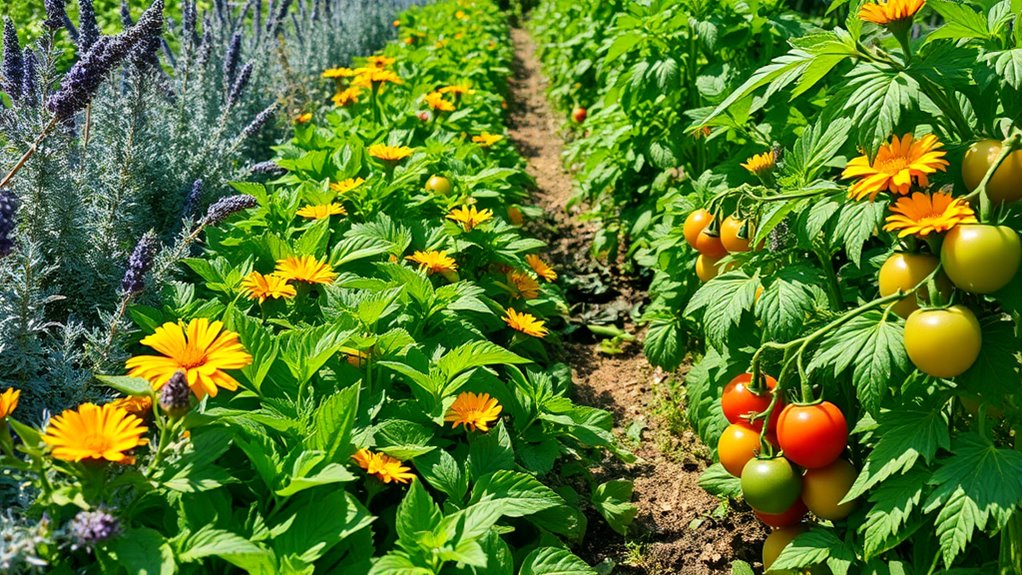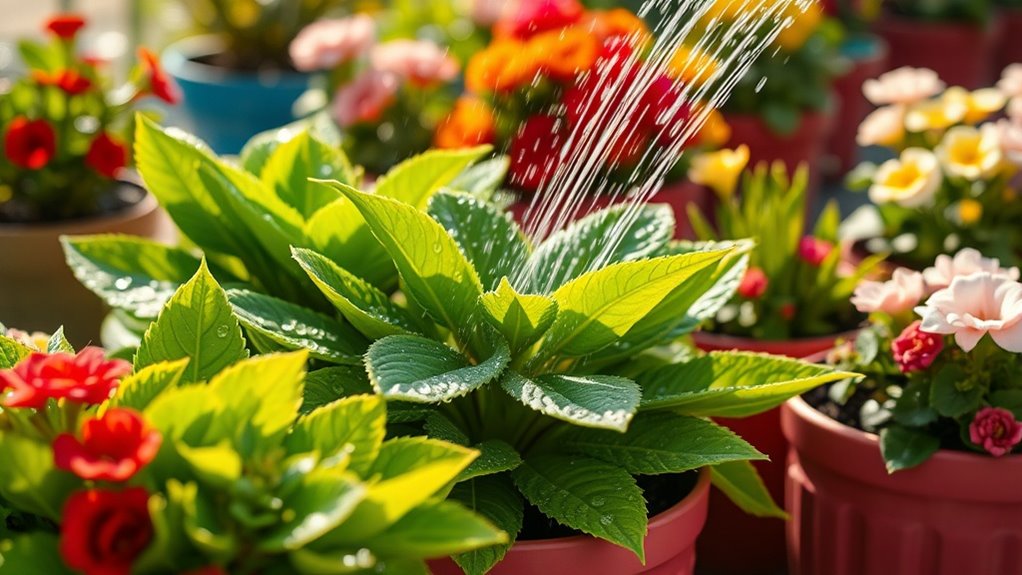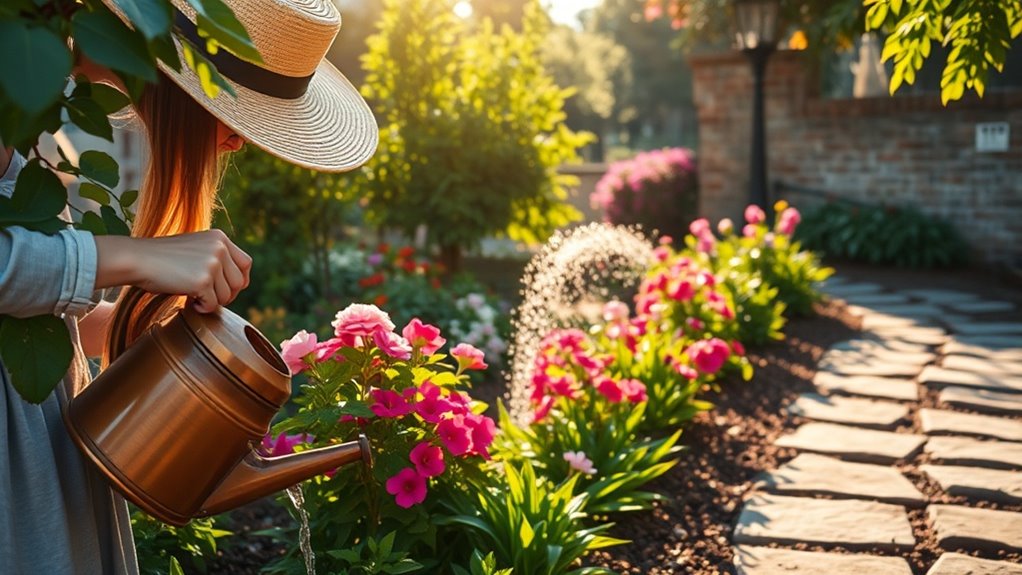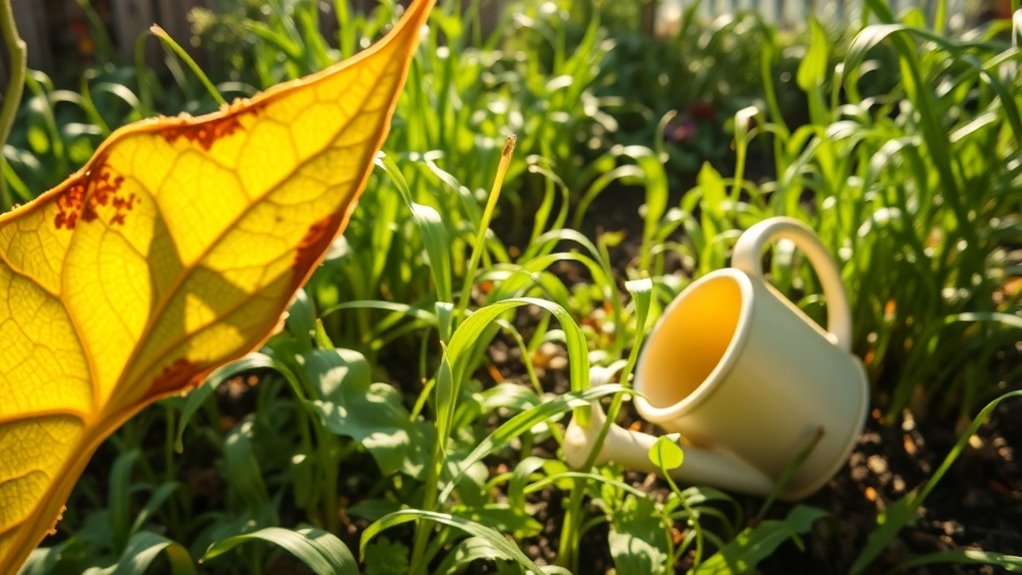These Companion Plants Keep My Crops Thriving
When it comes to gardening, companion planting can significantly enhance your crop yield and health. By pairing certain plants, you can create a balanced ecosystem that benefits your vegetables and flowers alike. For example, basil doesn’t just elevate your tomato dishes; it also wards off unwanted pests. Curious about which companion plants can maximize your garden’s potential? Let’s explore some practical combinations that can transform your gardening experience.
Benefits of Companion Planting
Although you may think of companion planting as just a gardening trend, it offers numerous practical benefits that can enhance your crop yields and garden health.
By strategically placing plants together, you can deter pests, improve nutrient uptake, and encourage pollination. Additionally, certain companion plant pairings can significantly enhance the flavor of your fruits.
For the best results, remember these companion planting tips: mix complementary plants, rotate crops, and monitor growth for effective combinations.
Top Companion Plants for Vegetables
Companion planting goes beyond merely pairing plants; it’s about creating a harmonious environment that boosts your vegetable garden’s productivity.
Utilizing the right companions can protect against pests and enhance growth.
- Basil: Repels flies and mosquitoes, enhancing tomato flavor.
- Nasturtiums: Attracts aphids away from vegetables.
- Marigolds: Deters nematodes and other garden pests.
Incorporate these plants for a thriving garden!
Flowering Companions for Fruit Trees
Adding flowering companions to your fruit trees can significantly enhance their health and productivity.
Marigolds, for instance, deter pests and attract beneficial insects, while lavender offers a fragrant lure for pollinators.
Planting nasturtiums nearby can also improve soil conditions and suppress harmful pests.
These vibrant blooms not only beautify your orchard but contribute to higher yields and healthier trees.
Herbs That Enhance Growth and Flavor
When you plant herbs alongside your crops, you not only boost their growth but also enhance the flavors of the fruits and vegetables you harvest.
Consider incorporating these powerful herbs into your garden:
-
Basil: Helps tomatoes thrive and adds a sweet touch.
-
Chives: Enhances the taste of carrots and deter pests.
-
Parsley: Boosts the flavor of a variety of vegetables while attracting beneficial insects.
Additionally, many of these herbs possess medicinal properties that contribute to overall health benefits in your diet.
Pest Control Through Companion Planting
By planting certain crops alongside one another, you can create a natural defense against pests that threaten your garden.
For example, marigolds repel nematodes, while basil wards off mosquitoes and flies.
Consider pairing beans with corn, as beans fix nitrogen and improve soil health, making your corn less vulnerable.
This strategic planting not only protects your crops but promotes biodiversity in your garden.
Seasonal Plant Pairings for Year-Round Success
To achieve year-round success in your garden, it’s essential to understand which plants thrive together in different seasons. Seasonal pairings enhance growth, deter pests, and optimize resources. Consider the following combinations:
- Spring: Tomatoes with basil
- Summer: Cucumbers with sunflowers
- Fall: Brassicas with marigolds
Utilizing these pairings can improve your garden’s yield and health throughout the year! Additionally, incorporating natural weed killers can help maintain a healthy environment for these plants to flourish without harming your garden’s existing flora.





